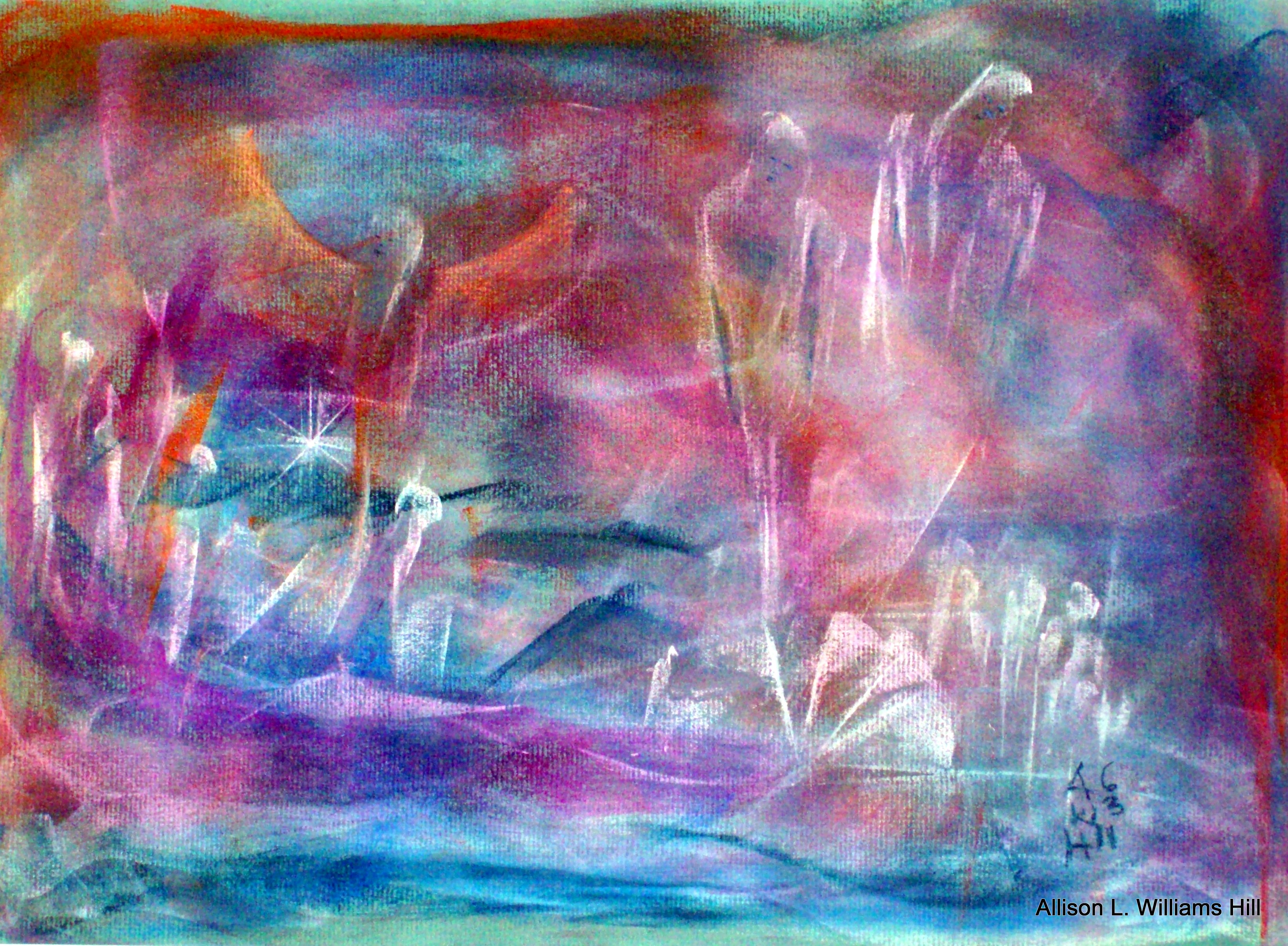Church
Part 4 - Ruins

hurch ruins are magnificent structures, the remains of past manifestations of human will and desire. Their designs reflect how humans perceived where higher powers resided or where they perceived a being capable of higher powers that diminish their own. The ideas were shaped by the Creator's representatives on the planet, self-appointed or selected. In Byron Katie's words from Who Would You Be Without Your Story , "When you believe the thought...You have to live out the belief." God is above humans. God and Heaven are in the sky. The buildings were structured to reach as high as the engineering and materials afforded.
from "By Centres Of Magnetism" from The Hidden Sides of Things by C.W. Leadbetter
The religious life of the old world can best be sensed in this way through the agency of its temples; but it is equally possible in the same way to come into touch with the daily life of those vanished nations, by standing among the ruins of their palaces and their homes. This needs perhaps a keener
clairvoyant sense than the other. The force which permeates the temple is powerful because it is to a considerable extent one-pointed-- because all through the centuries people have come to it with one leading idea of prayer or devotion, and so the impression made has been comparatively powerful. In their homes, on the other hand, they have lived out their lives with all kinds of different ideas and warring interests, so that the impressions often cancel one another.
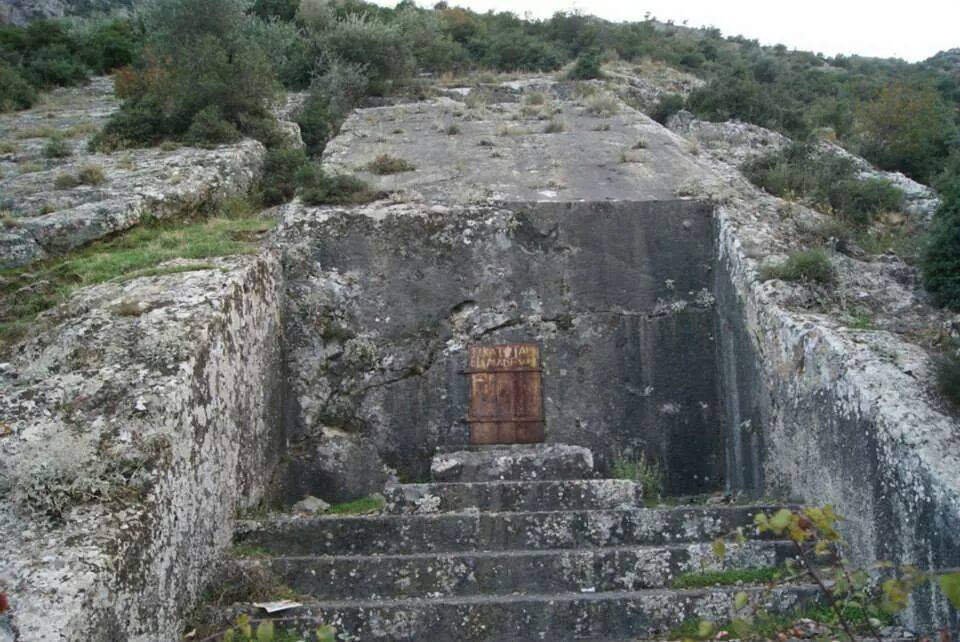
Entrance of Church Ruin
Nevertheless there emerges, as years roll on, a sort of least common multiple of all their feelings, which is characteristic of them as a race, and this can be sensed by one who has the art of entirely suppressing those personal feelings of his own, which are so far nearer and more vivid to him, and listening earnestly to catch the faint echo of the life of those times so long ago. Such study often enables one to take a juster view of history; manners and customs which startle and horrify us, because they are so remote from our own, can in this way be contemplated from the point of view of those to whom they were familiar; and in seeing them thus, one often realises for the first time how entirely we have misconceived those men of the past.
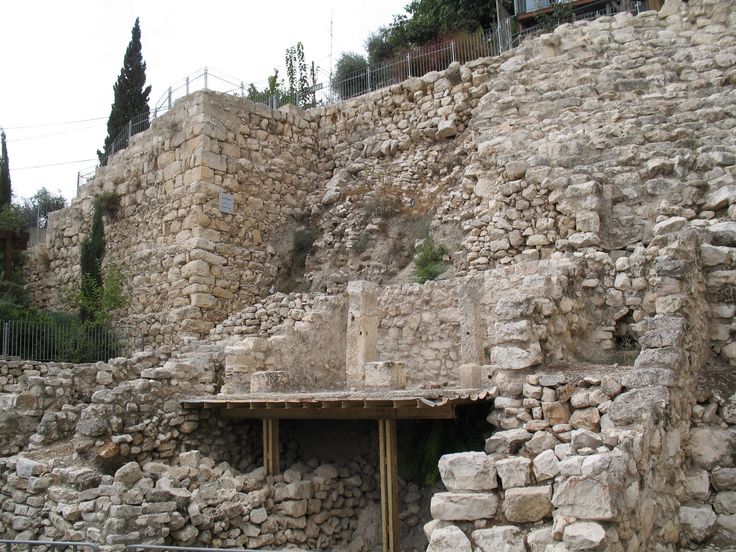
Some of us may remember how, in our childhood, ignorant though well-meaning relations endeavoured to excite our sympathy by stories of Christian martyrs who were thrown to the lions in the Colosseum at Rome, or reprobated with horror the callous brutality which could assemble thousands to enjoy the combats between gladiators. I am not prepared to defend the tastes and amusements of the ancient Roman citizen, yet I think that any sensitive person who will go to the Colosseum at Rome and (if he can for the moment escape from the tourist) sit down there quietly, and let his consciousness drift backwards in time until he can sense the real feeling of those enormous, wildly-excited audiences, will find that he has done them a gross injustice.
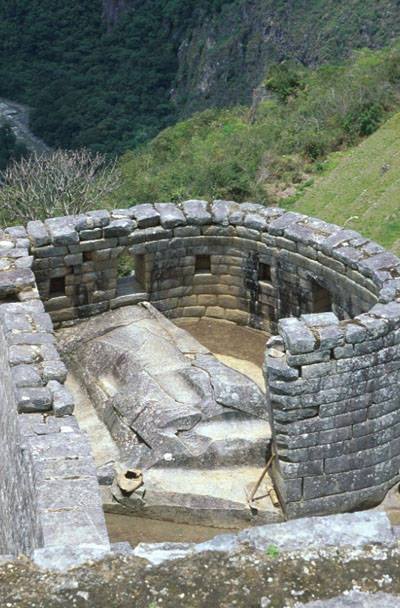
Inca Temple of the Sun Ruin
First, he will realise that the throwing of Christians to the lions because of their religious belief is a pious falsehood of the unprincipled early Christians. He will find that the government of Rome was in religious matters distinctly more tolerant than most European governments at the present day; that no person was ever executed or persecuted on account of any religious opinion whatever, and that those so-called Christians who were put to death suffered not in the least because of their alleged religion, but because of conspiracy against the State, or of crimes which we should all join in reprobating.
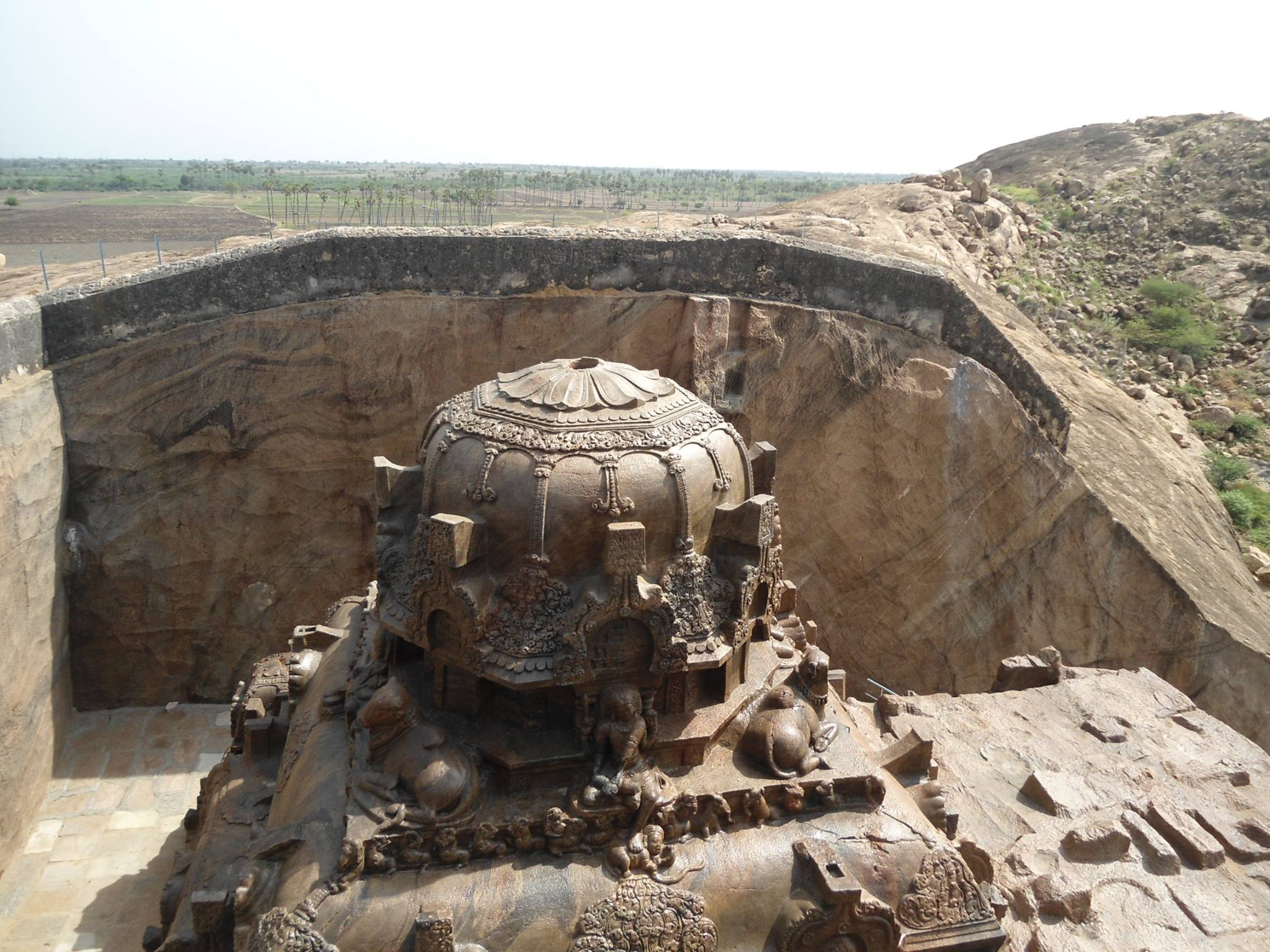
Vettuvan Koil Temple,Tamilnadu,India Ruin
He will find that the government allowed and even encouraged gladiatorial combats, but he will also find that only three classes of people took part in them. First, condemned criminals-- men whose lives had been forfeited to the law of the time-- were utilised to provide a spectacle for the people, a degrading spectacle certainly, but not in any way more so than many which receive popular approval at the present day. The malefactor was killed in the arena, fighting either against another malefactor or a wild beast; but he preferred to die fighting rather than at the hands of the law, and there was always just a possibility that if he fought well he might thereby contrive to earn the applause of the fickle population; and so save his life.
The
second class consisted of such prisoners of war as it was the fashion
of the time to put to death; but in this case also these were people
whose death
was already decided upon, and this particular form of death utilised them for a certain form of popular entertainment, and also gave them a chance of saving their lives, at which they eagerly grasped. The third class were the professional gladiators, men like the prize-fighters of the present day, men who took up this horrible line of life for the sake of the popularity which it brought-- accepting it with their eyes fully open to its danger.
I am not for a moment suggesting that the gladiatorial show was a form of entertainment which could possibly be tolerated by a really enlightened people; but if we are to apply the same standard now, we shall have to admit that no enlightened nations have yet come into existence, for it was no worse than the mediaeval tournaments, than the cock-fighting and bear-baiting of a century ago, or than the bull-fight or prize-fight of the present day. Nor is there anything to choose between the brutality of its supporters and that of the people who go in vast crowds to see how many rats a dog can kill in a minute, or that of the noble sportsmen who (without the excuse of anything in the nature of a fair fight) go out to slaughter hundreds of inoffensive partridges.

Underwater huge megalithic ruin, Lemuria
We are beginning to set a somewhat higher value on human life than they did in the days of ancient Rome; but even so I would point out that that change does not mark a difference between the ancient Roman race and its reincarnation in the English people, for our own race was equally callous about wholesale slaughter up to a century ago. The difference is not between
us and the Romans, but between us and our very recent ancestors; for the crowds which in the days of our fathers went and jested at a public execution can hardly be said to have advanced much since the time when they crowded the benches of the Colosseum.
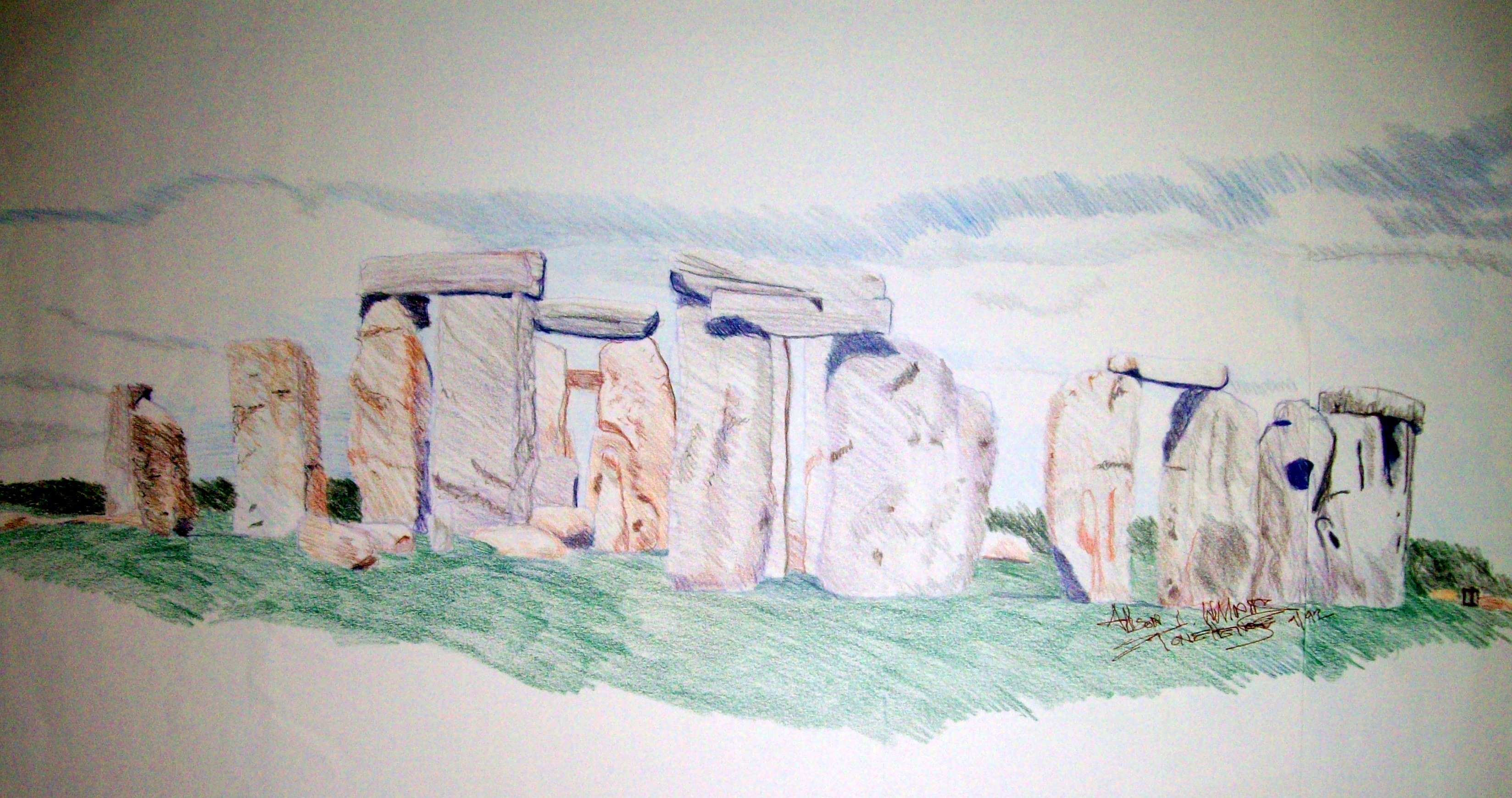
It is true that the Roman Emperors attended those exhibitions, as the English Kings used to encourage the tournament, and as the Kings of Spain even now patronise the bull-fight; but in order to understand the varied motives which led them to do this we must make a thorough study of the politics of the time-- a matter which is quite outside the scope of this book. Here it must suffice to say that the Roman citizens were a body of men in a very curious political position, and that the authorities considered it necessary to provide them with constant entertainments in order to keep them in a good humour. Therefore they hit upon this method of utilising what they regarded as the necessary and customary execution of criminals and rebels, in order to provide for the proletariat a kind of entertainment which it enjoyed. A very brutal proletariat, you will say. One must certainly admit that they were not highly advanced, but at least they were far better than those much later specimens who took active part in the unspeakable horrors of the French Revolution, for these last felt an active delight in blood and cruelty, which were only unnoticed concomitants of the enjoyment in the case of the Roman.

Quits by Allison L. Williams Hill
Anyone who, standing in the Colosseum, as I have said, will really allow him-self to feel the true spirit of those crowds of long ago, will understand that what appealed to them as the excitement of the contest and the skill exhibited in it. Their brutality consisted not in the fact that they enjoyed bloodshed and suffering, but that in the excitement of watching the struggle they were able to ignore it-- which after all is very much what we do when we eagerly follow in the columns of our newspapers the news from the seat of war in the present day. Level for level, case for case, we of the fifth sub-race have made a slight advance from the condition of the fourth sub-race of two thousand years ago; but that advance is much slighter than our self-satisfaction has persuaded us.
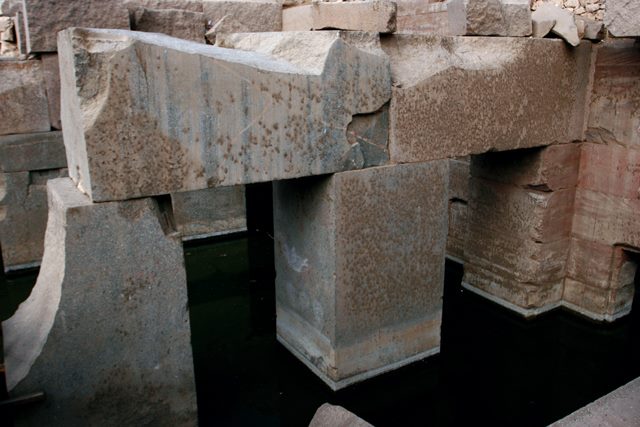
6.000-year-old Osirian Temple ruin in Abydos,Egypt
Every country has its ruins, and in all alike the study of the older life is an interesting study. A good idea of the wonderfully varied activities and interests of the mediaeval monastic life in England may be obtained by visiting that queen of ruins, Fountains Abbey, just as by visiting the stones of Carnac (not in Egypt but in Morbihan) one may watch the midsummer rejoicings round the tantad or sacred fire of the ancient Bretons.
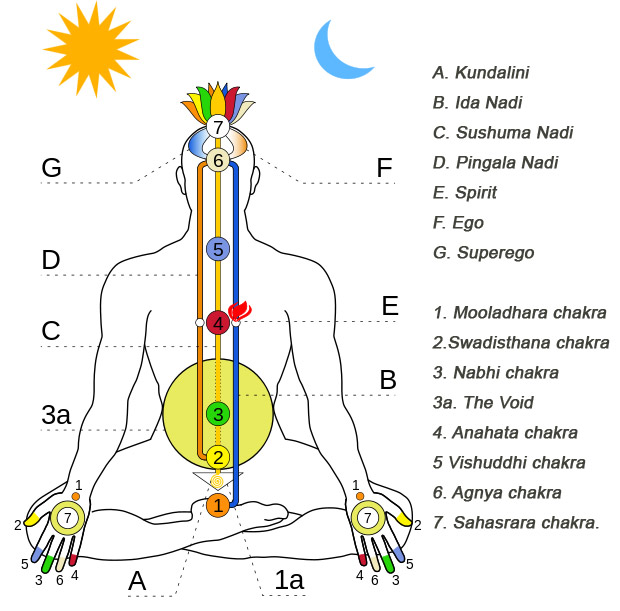
Ida Pingala Diagram
There is perhaps less necessity to study the ruins of India, [Really?!-ALWH] since daily life there has remained so unchanged throughout the ages that no clairvoyant faculty is required to picture it as it was thousands of years ago. None of the actual buildings of India go back to any period of appreciable difference, and in most cases the relics of the golden age of India under the great Atlantean monarchies are already deeply buried. If we turn to mediaeval times, the effect of environment and religion on practically the same people is curiously illustrated by the difference in feeling between any ancient city of the north of India and the ruins of Anuradhapura in Ceylon.
Links
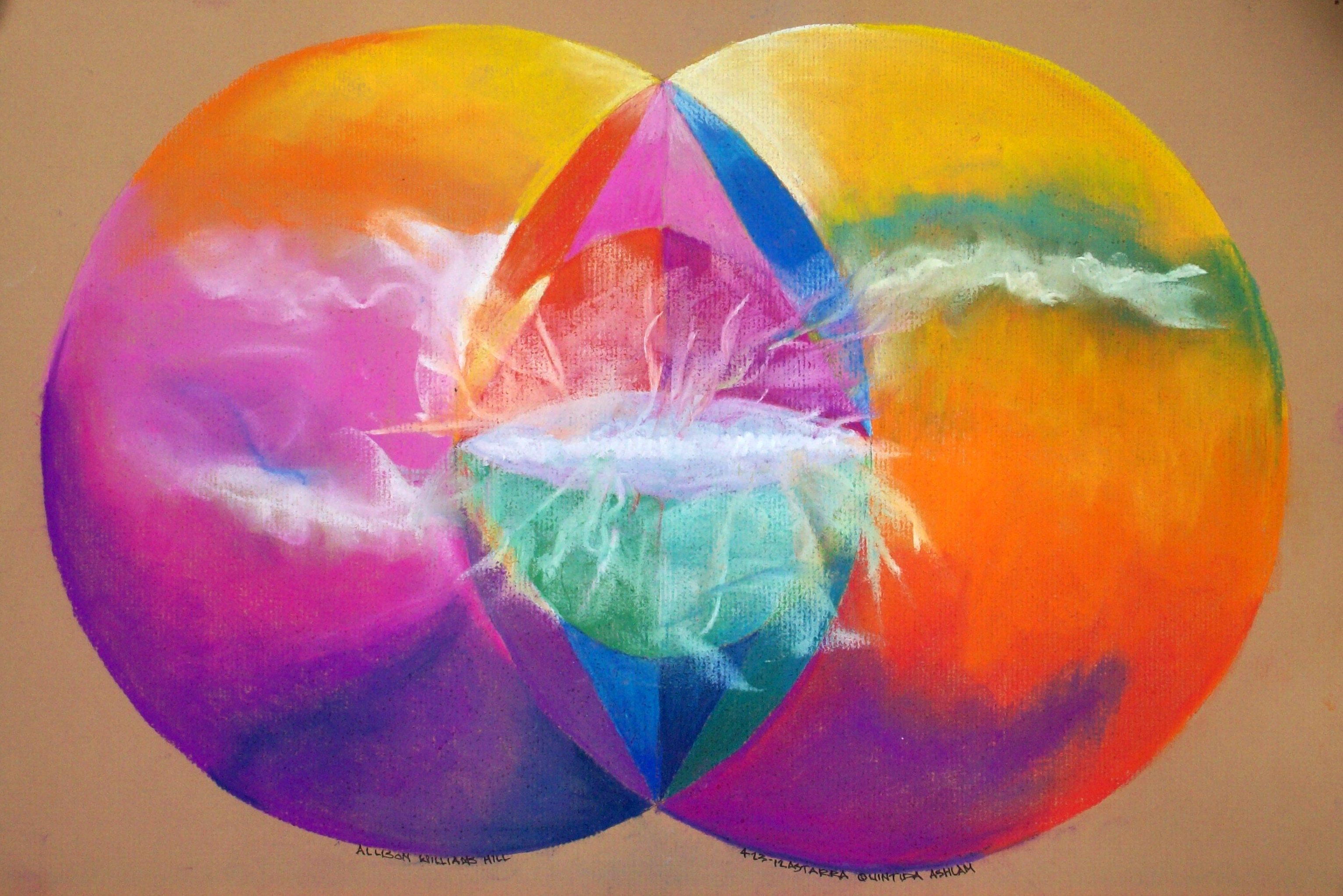
The above meditation mandala will be available soon.




Looking West on Drake's Highway, Tortola towards the Caribbean Sea by Allison L. Williams Hill
Fur Baby Lounge
Coming soon.
InVesica Market
InVesica Market has t-shirts; mugs, clocks and more!
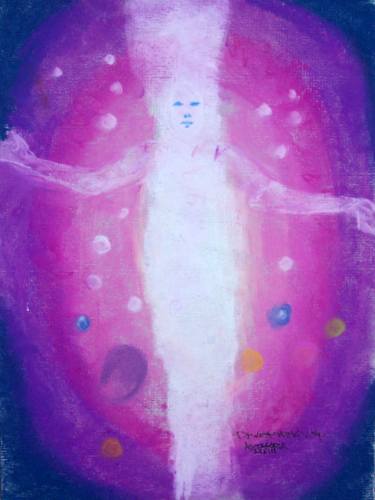
Gifts from Spirit Discernment

Gifts from Spirit Prophesy
Gifts from Spirit blank note cards coming soon!

Doesn't the dormouse in the heather appear to be smiling? I found out from the Comedy Wild Life Photography Awards web site that Mr. Andrea Zampatti is the photographer. Please visit his website for more fascinating images that he was in the right place at the right time to capture.
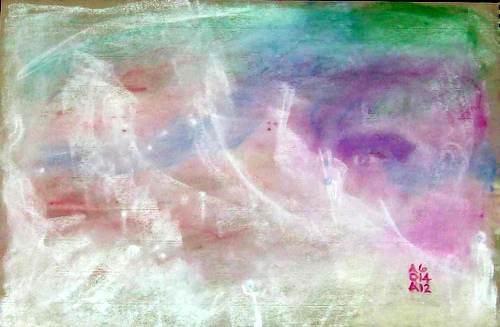
Drawings!
When time permits, I intend to hold drawings to create
- an intuitive visionary healing tape, or
- a soul life reading, or
- an energy reading
for the winners whose names are drawn for each. To enter, your name and email address will be required. It will be added to a mailing list to receive updates about In-Vesica. In-Vesica will post the art work on this web site and in other publications.
Services explains what is involved in creating these helpful tools. The images will be displayed at In-Vesica and the In-Vesica Art Gallery.
Of course, I collect your email and, thereafter, you will receive periodic updates on In-Vesica - spiritual development; health coaching; energetic healing; art and design, when projects will be launched, and what I eat (I'm kidding!).

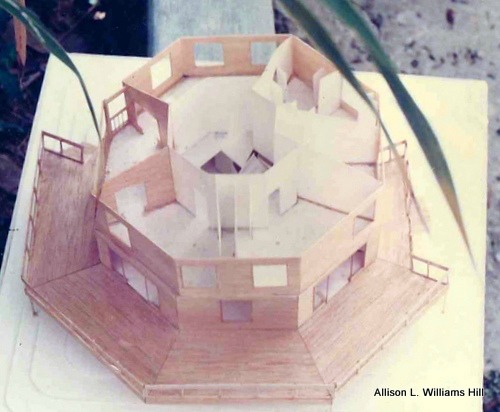
Design
Article: What is Psycho-ecological Design?
Article: Peace Be Your Sanctuary
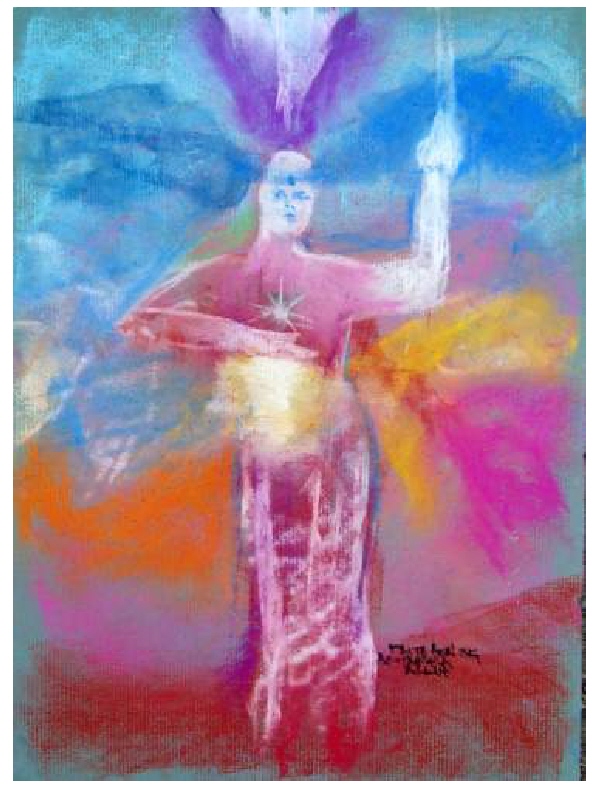
Energy
Energetic Healing

Chakras

Writings
Imagination

66 Hobby and Craft Niche Ideas
Experienced Article Writer's Guide
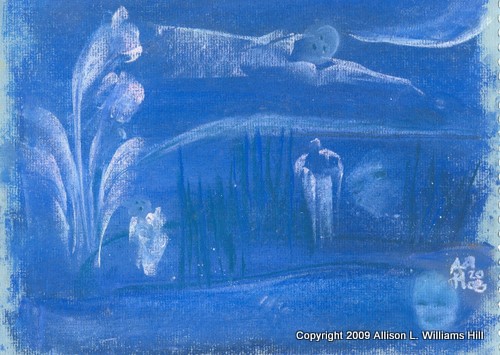
Website Reports

for the Progressive Website Owner
Advarti is an extraterrestrial, a member of a group called The Ring. They are beings who are interested in Earth's and its people's progress.
